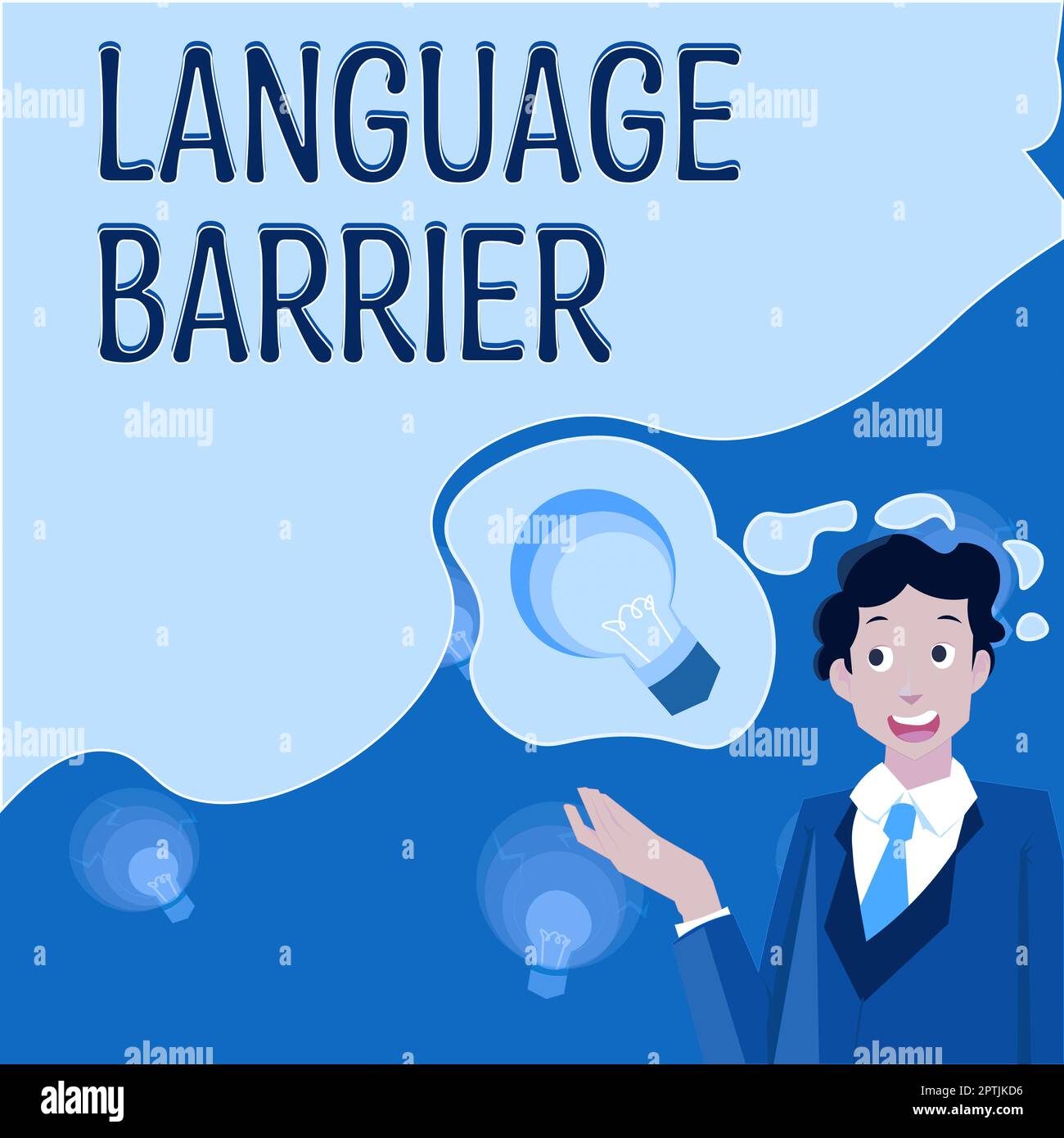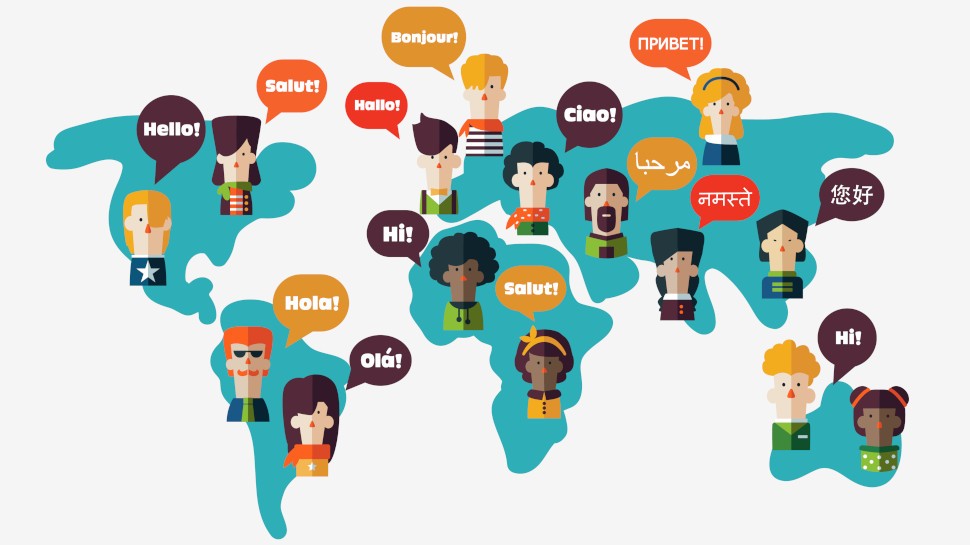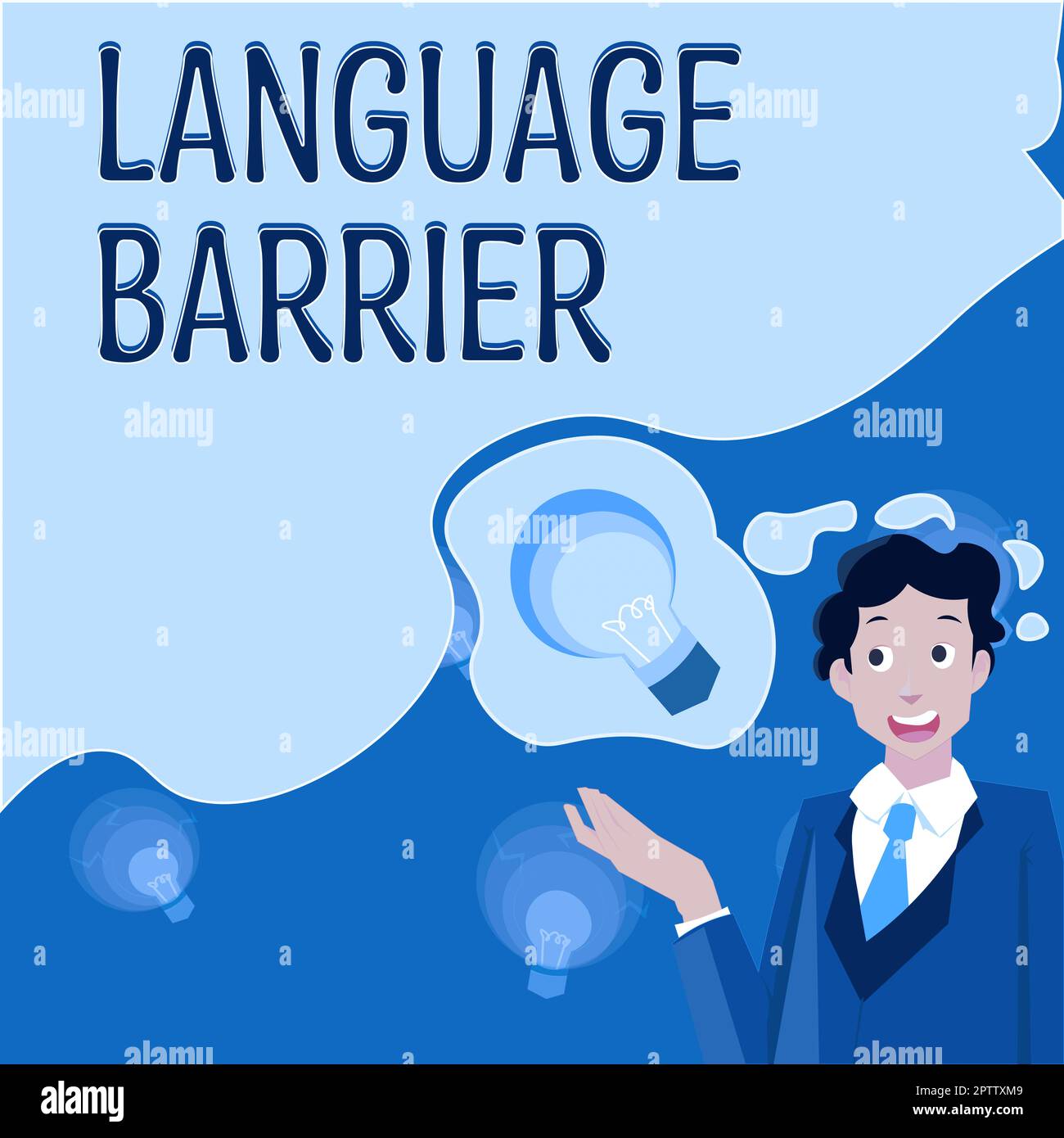Why Speaking a Different Language in Business Be a Barrier?
Speaking a different language in business can be a barrier as it hinders effective communication and understanding. It often leads to misunderstandings, confusion, and a lack of trust, making it difficult to build strong business relationships and conduct successful negotiations.
Additionally, it limits opportunities for collaboration and expansion into global markets. Consequently, businesses must bridge this language barrier by providing language training, hiring interpreters, or utilizing translation services to ensure smooth communication and enhance their competitiveness in the global landscape.
By doing so, they can break down linguistic barriers and foster a more inclusive and connected business environment.
Language Barriers In Business
Language barriers in business can hinder effective communication and cooperation between individuals speaking different languages. This can lead to misunderstandings, cultural clashes, and a loss of business opportunities. It is essential for organizations to overcome language barriers by utilizing translation services, language training programs, or hiring multilingual staff to foster successful international business relationships.
Different Languages As A Communication Barrier
Language barriers in business can pose significant challenges when it comes to effective communication and collaboration. As the global market becomes more interconnected, businesses are increasingly interacting with individuals from different cultural and linguistic backgrounds. Speaking a different language can often serve as a major barrier to achieving successful business outcomes.
One of the main reasons why different languages can be a communication barrier in business is the difficulty in understanding and conveying information accurately. When individuals speak in their native language, they are more likely to express themselves confidently and precisely. However, when faced with a language they are not fluent in, there is a higher chance of miscommunication and misunderstandings.
Moreover, the use of idioms, slang, and cultural references that are specific to a particular language can further complicate communication. These linguistic nuances may not be easily understood by speakers of other languages, leading to confusion and potential breakdowns in communication.
Challenges Of Speaking A Different Language In Business
Speaking a different language in a business setting presents several challenges that can hinder effective communication and collaboration. These challenges include:
- Vocabulary limitations: Limited vocabulary in a foreign language can make it challenging to express complex ideas or negotiate business deals effectively.
- Grammar and syntax errors: Non-native speakers may struggle with grammar and syntax, which can impact the clarity and professionalism of their communications.
- Misinterpretation of tones and intentions: Different languages have different tones and linguistic cues that convey specific meanings. Without understanding these nuances, messages can be misinterpreted, leading to misunderstandings or conflicts.
- Cultural sensitivity: Language is deeply intertwined with culture. Without an understanding of cultural norms and customs, it is easy to unintentionally offend or alienate business partners or clients.
In order to overcome these challenges, businesses can take proactive steps such as providing language training to employees, using professional interpreters or translators for important meetings or negotiations, and fostering a culture of patience and understanding when communicating across languages.

Credit: emilypost.com
Impact On Business Communication
When professionals speak different languages in business, it can become a significant barrier to effective communication. This hurdle may lead to misunderstandings, misinterpretations, and overall inefficiency, impacting the smooth flow of operations and collaboration within the organization.
Misinterpretations And Misunderstandings
When individuals in a business communicate in different languages, the potential for misinterpretations and misunderstandings significantly increases. The lack of shared language can lead to difficulties in conveying ideas accurately and comprehending information correctly. Simple phrases or words might be misinterpreted, resulting in confusion or even conflicts.
Miscommunications can occur due to differences in grammar, vocabulary, or pronunciation. Even minor language barriers can hinder effective business communication, leading to delays, errors, and decreased productivity. For example, a simple misunderstanding during negotiations could result in a failed business deal or partnership.
Loss Of Nuance And Cultural Context
Speaking a different language in a business setting can also result in a loss of nuance and cultural context. Language plays a crucial role in conveying subtle meanings, idioms, and cultural references that may not directly translate into another language. These nuances shape the way individuals interpret and respond to messages.
Additionally, language is deeply intertwined with culture, and understanding cultural norms and customs is essential for successful business interactions. Without proficiency in the same language, it becomes more challenging to grasp the cultural context, leading to potential misunderstandings and inappropriate behavior. For example, a gesture or phrase that is considered friendly in one culture may be seen as offensive or unprofessional in another.
Reducing Language Barriers
In the global marketplace, speaking a different language can be a significant barrier to conducting business effectively. The inability to communicate fluently in a common language can lead to misunderstandings, loss of deals, and hamper business growth. However, there are strategies that can help organizations overcome these language barriers and foster smooth communication and collaboration.
Investing In Language Training
One of the most effective ways to bridge the language gap is by investing in comprehensive language training for employees. By equipping staff with the necessary language skills, businesses can enhance their ability to communicate with clients and partners who may not speak the same native language. Language training programs can range from basic conversational skills to advanced business language proficiency, enabling employees to confidently navigate cross-cultural communication.
Using Technology For Multilingual Communication
Thanks to advancements in technology, businesses now have access to a wide array of tools and platforms that facilitate multilingual communication. Translation software, online dictionaries, and language learning apps can be immensely helpful in overcoming language barriers. These digital resources empower users to instantly translate written and spoken content, ensuring that everyone involved in a conversation or project can understand and contribute effectively.
In addition, businesses can leverage video conferencing tools that offer real-time transcription and translation services. This means that during virtual meetings, participants can receive translated transcripts of the discussion in their preferred language. Such technology not only saves time but also eliminates the need for interpreters, making communication more seamless and efficient.
Furthermore, utilizing multilingual chatbots or virtual assistants can enhance customer support and facilitate communication with international clients. These AI-powered tools can understand and respond to queries in multiple languages, providing personalized assistance and reducing language barriers between businesses and their customers.
By embracing technology, businesses can break down language barriers, enhance communication, and expand their global reach. However, it’s important to note that technology should not replace the need for human interaction and language proficiency. The goal is to supplement language skills with digital tools to create a more inclusive and efficient business environment.
Importance Of Cultural Competency
Speaking a different language in business can be a significant barrier to effective communication and understanding. Cultural competency is crucial in overcoming this hurdle as it allows individuals to bridge linguistic and cultural gaps, fostering better relationships and opportunities for success.
Speaking a different language in business can often be a barrier, hindering effective communication and understanding between individuals from diverse backgrounds. However, it goes beyond just the language itself. Cultural competency plays a crucial role in successfully navigating the intricacies of global business. It entails gaining a deep understanding and appreciation for the customs, norms, and values of different cultures. By prioritizing cultural competency, organizations can foster stronger relationships, build trust, and create mutual respect with global partners. In this article, we will explore the significance of cultural competency in international business by examining two key aspects: understanding cultural norms and customs and building trust and rapport in global business.Understanding Cultural Norms And Customs
To establish meaningful connections with individuals from different cultural backgrounds, it is essential to familiarize yourself with their unique norms and customs. This not only helps to avoid unintentionally causing offense but also demonstrates respect for their values and traditions. Being aware of cultural nuances such as greetings, gift-giving etiquette, and communication styles is crucial for effective business interactions. For example, in some cultures, it is customary to exchange business cards formally with both hands, while in others, it may be seen as a less significant gesture.Building Trust And Rapport In Global Business
Trust is the foundation of any successful business relationship. In global business, cultural competency plays a vital role in developing trust and rapport with international partners. When we show an understanding and appreciation for their culture, it creates a sense of validation and respect. This, in turn, fosters open and honest communication, increasing the likelihood of successful collaborations. Additionally, cultural competency enables you to navigate potential challenges or misunderstandings that may arise due to cultural differences, ensuring smoother and more productive business interactions. By prioritizing cultural competency, organizations can break down barriers caused by language differences. It facilitates effective communication, creates stronger relationships, and underscores mutual respect. Understanding cultural norms and customs and building trust and rapport in global business are key pillars of cultural competency that ultimately lead to better outcomes in international business endeavors.Overcoming Language Barriers In International Business
Speaking a different language can often be a significant barrier in the world of international business. Miscommunication, misunderstandings, and missed opportunities can arise when language becomes a hindrance. However, with the right strategies in place, these barriers can be effectively overcome. Here, we explore two key approaches to tackling language barriers in business.
Hiring Interpreters And Translators
When conducting business across language boundaries, hiring interpreters and translators is a crucial step to ensure effective communication. These professionals play a vital role in bridging the language gap, facilitating smooth conversations among parties involved.
By having interpreters present during meetings, negotiations, and conferences, businesses can eliminate the risk of misunderstandings and maintain a high level of clarity. Interpreters not only provide real-time assistance but also help in conveying cultural nuances that are often lost in translation.
Adopting A Collaborative Approach
Another effective way to overcome language barriers is by adopting a collaborative approach. Instead of solely relying on interpreters, businesses can foster an environment where all parties make an effort to understand and accommodate each other’s language needs.
This can include providing language training or resources to employees, encouraging language exchange programs, or utilizing technology-based language-learning platforms. When both sides invest in learning basic phrases and key business vocabulary, it not only facilitates smoother communication but also demonstrates a commitment to building strong relationships.
In addition, businesses can also consider implementing non-verbal communication techniques such as visual aids, gestures, or simple diagrams. These methods can enhance understanding and ensure that information is effectively communicated without solely relying on language.
By hiring interpreters or translators and adopting a collaborative approach, businesses can overcome language barriers and tap into the lucrative international business market. Empowered by effective communication, companies can forge strong relationships and capture new opportunities, ultimately driving growth and success.

Credit: www.alamy.com

Credit: www.linkedin.com
Frequently Asked Questions On Why Speaking A Different Language In Business Be A Barrier?
Faq 1: Why Is Speaking A Different Language In Business A Barrier?
Speaking a different language in business can be a barrier as it hinders effective communication and understanding between parties.
Faq 2: How Does Language Diversity Impact Business Interactions?
Language diversity can impact business interactions by causing misinterpretation, cultural misunderstandings, and potential loss of opportunities.
Faq 3: What Are The Challenges Of Overcoming Language Barriers In The Business World?
Overcoming language barriers in the business world can be challenging, as it requires language training, hiring translators, and adapting to different communication styles.
Conclusion
Language barriers can pose significant challenges in business communication. Without a common language, misunderstandings can occur, leading to confusion and potentially damaging relationships. It is crucial for businesses to overcome this hurdle by investing in language training and translation services.
By breaking down the language barrier, businesses can open up doors to new opportunities, build stronger connections with international partners, and ultimately drive success in a globalized economy.




